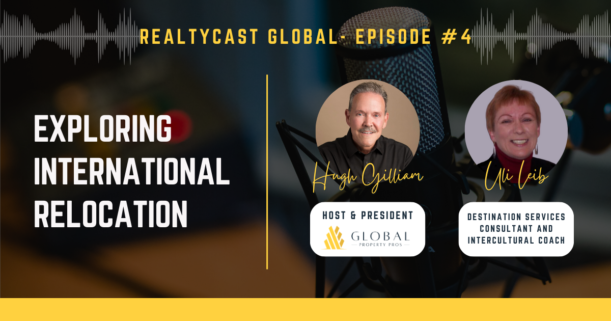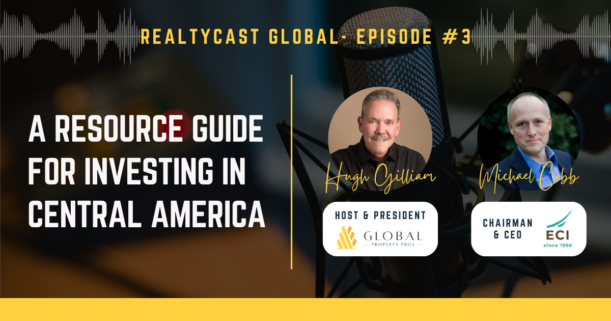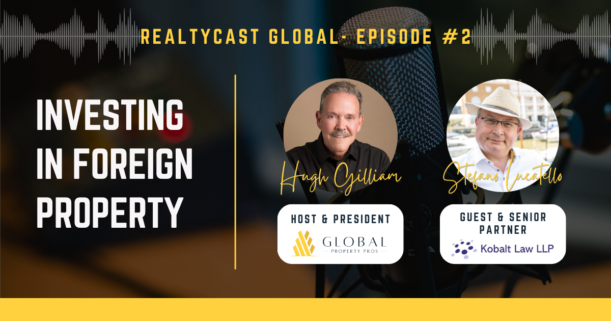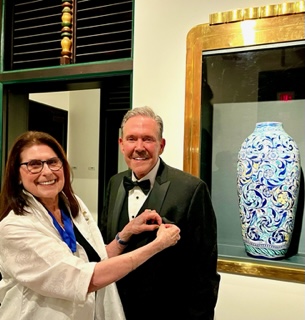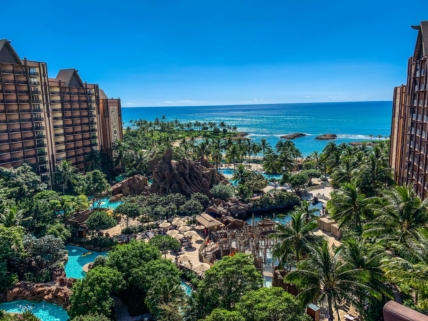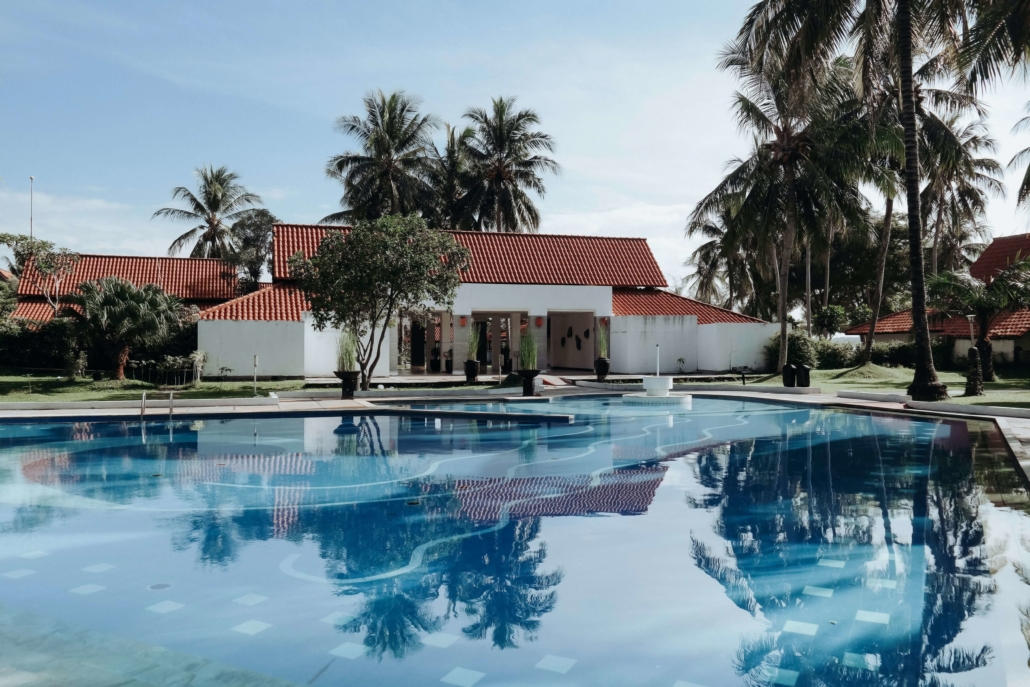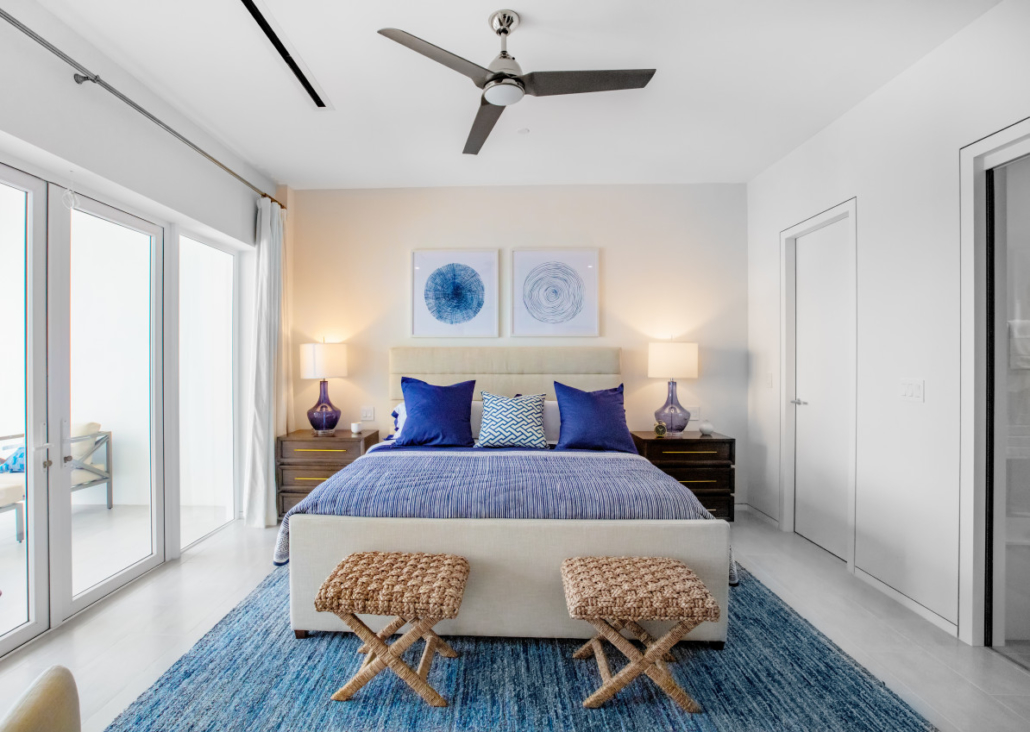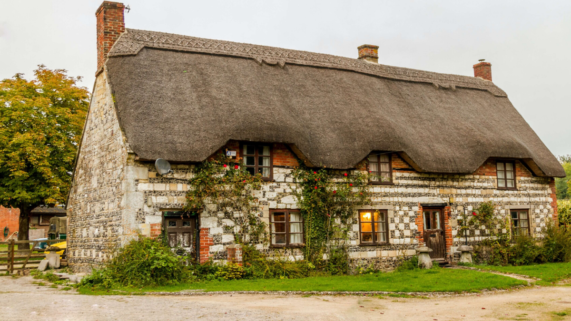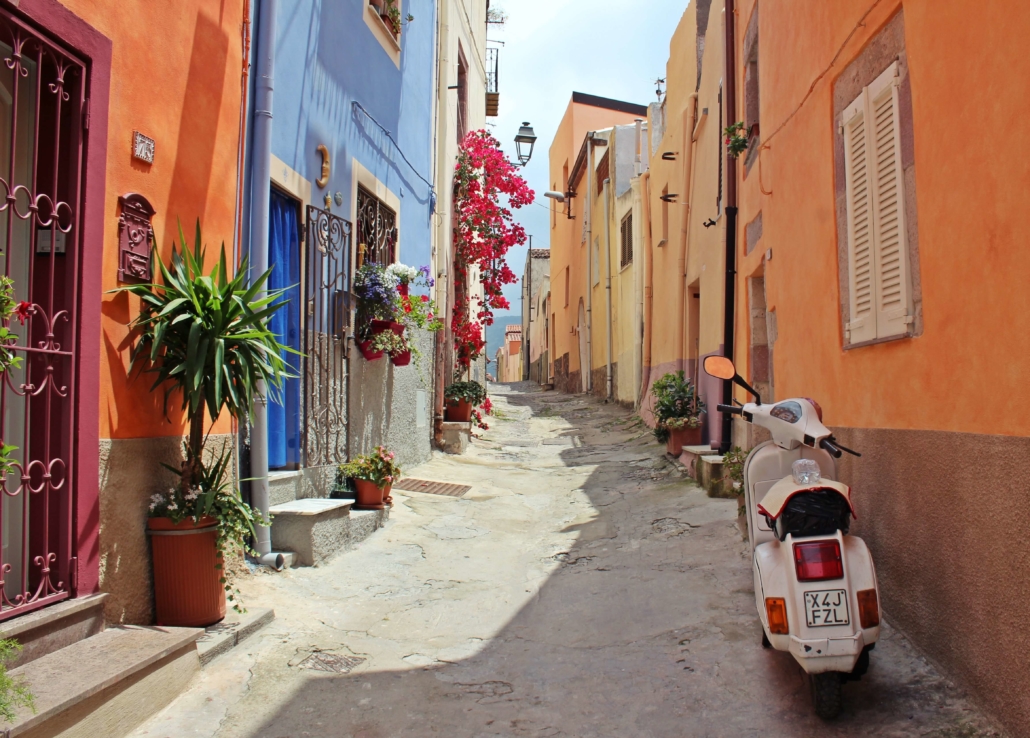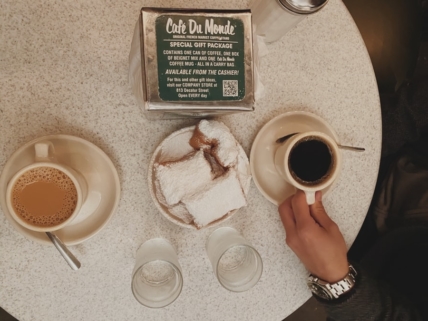RealtyCast Global #4: Exploring International Relocation with Uli Leib
Welcome to episode #4 of RealtyCast Global – a global connection to all things real estate, hosted by Hugh Gilliam, president of Global Property Pros.
As globalization continues to shape the world, international corporate relocations are becoming increasingly common. In this episode, we had the pleasure of hosting Uli Leib, an experienced professional in international relocation. Uli assisted us in understanding the numerous reasons companies send their employees abroad, and the enticing benefits offered to facilitate these moves. From cost-of-living allowances to immigration assistance, companies go to great lengths to support their employees in these significant transitions.
Assignments can be short-term or long-term, each affecting the relocation process differently. Short-term assignments usually involve specific projects, while long-term assignments could involve establishing a new operation in a foreign country or filling technical needs. The duration of these assignments can greatly influence the types of benefits employees receive. For instance, short-term assignees might be treated like business travelers, with their accommodation and meals covered, while long-term assignees often receive comprehensive benefits packages, including housing, schooling, and even cultural training.
A crucial part of the relocation process, often overlooked, is the role of real estate. Finding a suitable home in a foreign land can be a complex process. It requires careful consideration of budget, school districts, and commute times. Uli Leib, with his expertise, highlighted the importance of real estate agents understanding the unique needs of international assignees. He emphasized the potential for agents to expand their business through relocation services and become regional experts.
For real estate agents working with international assignees, Uli offered several invaluable tips. Firstly, agents need to understand that international assignees are usually excellent tenants and a good credit risk, but they do not have US credit established. Also, the lease process for these clients may not always be straightforward, often involving longer-term leases and the need for a diplomatic clause, which allows the lease to be broken without penalty if the employee is transferred again.
Secondly, real estate agents should aim to become experts in their areas, not just in terms of the housing market and prices, but also the local schools, healthcare facilities, and other aspects that someone new to the area might need to know. This expertise can be leveraged to provide valuable advice and support to international assignees, easing their transition into a new environment.
Lastly, Uli advised agents to establish connections with local destination services consultants. These professionals can provide invaluable assistance in navigating the complexities of the relocation process, from hooking up utilities to ensuring that all medical records and vaccinations are in order for schools.
International corporate relocations present a wealth of opportunities for real estate agents willing to navigate their complexities. As Uli Leib demonstrated in our discussion, with the right knowledge and approach, agents can significantly expand their business and become indispensable partners in the relocation process. Whether you’re a real estate agent looking to specialize in this field, or simply curious about the intricacies of international relocations, this episode of RealtyCast Global is not to be missed.
For real estate agents looking to expand their business internationally, expose existing listings to a global pool of buyers, and connect with new clients, check out Global Property Pros.
For Property Buyers & Sellers seeking assistance in the international market, check out RealtyHive’s property marketing solutions.
SUBSCRIBE to the RealtyCast Podcast to be notified when new RealtyCast Global episodes air:
About the Guest – Uli Leib:
Uli Leib is an accomplished relocation professional with expertise in practical aspects as well as adjustment strategies required for successful domestic and international relocations. As a trusted destination consultant with proven results, she delivers a range of destination services relying on her expert knowledge of the Chicagoland area. Uli is also an experienced intercultural coach.
Ms. Leib is of Austrian origin and lived and worked in Austria prior to moving to the United States. She also traveled extensively throughout Europe and continues to return to Austria frequently. She currently resides in the Chicago area.
Ms. Leib has taught German at the University of Illinois, Champaign-Urbana, and Chicago campuses. She also has extensive experience in cultural training, international relocation management, business consulting, and real estate.
After starting as a real estate sales associate, she managed a real estate office, became part owner of a real estate office, and later provided business consulting for real estate franchise owners. She also has extensive experience in the corporate relocation industry as a relocation consultant, training manager, and international operations manager. In the intercultural field, she served many years as an account manager and senior account manager for one of the world’s largest providers of cross-cultural training. Most recently, she has been working as an independent destination services consultant and intercultural coach for international families moving to the Chicago area.
Uli holds an M.A. degree in German Languages and Literature from the University of Illinois in Chicago. She is a Certified Relocation Professional and a member of the Employee Relocation Council and holds an Illinois Managing Broker’s License. Ms. Leib speaks German and English fluently.
Connect with Uli on LinkedIn: https://www.linkedin.com/in/uli-leib/
Contact Uli at: uleib@sbcglobal.net
About the host – Hugh Gilliam:
Hugh Gilliam co-owned a national transportation company, created a land development business, and worked as a general contractor in residential and commercial construction for over two decades. Hugh also co-founded an international distribution company and successfully negotiated and contracted with 135 sales representatives in the United States, Canada, France, Brazil, Japan, and the Netherlands.
Today, Mr. Gilliam is affiliated with RealtyHive, LLC where he serves as Director of International Real Estate and President of Global Property Pros. His duties include involvement in commercial and residential transactions, plus promoting marketing systems and lead generation platforms.
He is also co-founder of the luxury digital magazine, DOORWAYS INTERNATIONAL, powered by RealtyHive, which serves as a platform for Brokers and Buyers throughout 70 countries.
Hugh’s Designations Include:
- Certified Luxury Home Marketing Specialist
- Certified Distressed Property Export
- Certified International Property Specialist
- Certified International Investment & Immigration Specialist
- Transnational Referral Certification
Hugh’s Memberships Include:
- Georgia Association of REALTORS
- National Association of REALTORS
- International Real Estate Federation (FIABCI-USA)
- Asian Real Estate Association of America

